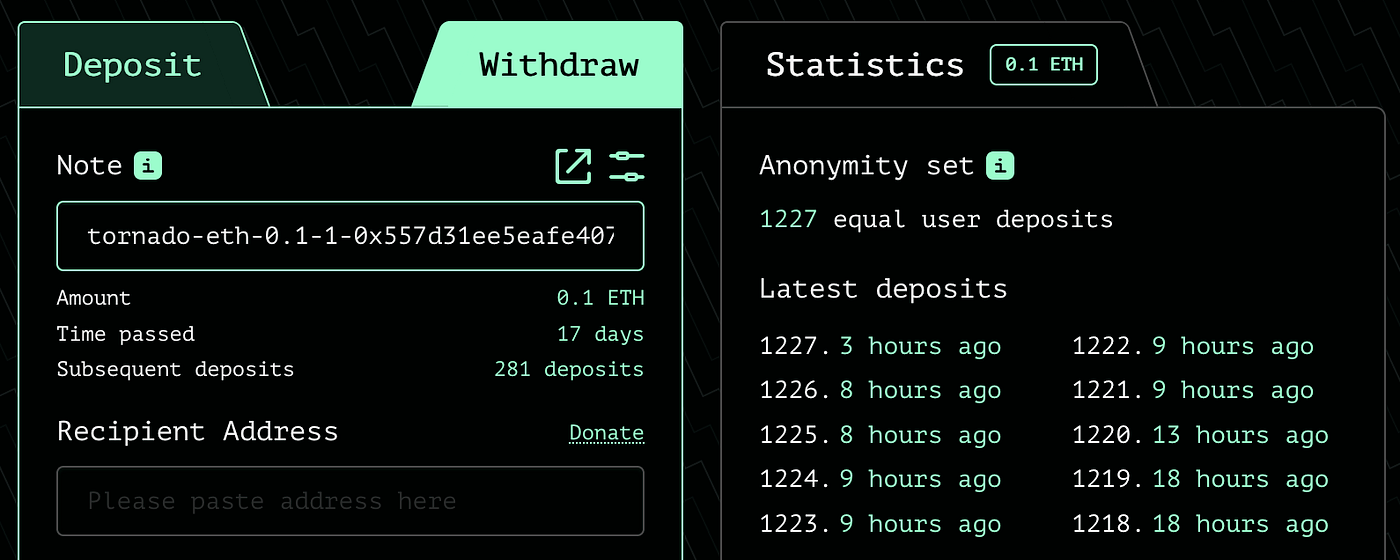Solar Innovations and Trends
Your source for the latest in solar technology and energy solutions.
Anonymous Deposits: The Secret Life of Cash
Discover the hidden world of anonymous deposits and how cash shapes secret lives. Unlock the mystery today!
The Hidden World of Anonymous Cash Deposits: What You Need to Know
The world of anonymous cash deposits is often shrouded in mystery, attracting both curiosity and caution from individuals seeking privacy in their financial transactions. These deposits allow individuals to place cash into accounts without revealing their identity, which can be appealing for various reasons, including security or avoiding prying eyes. However, it is crucial to understand the implications and risks associated with such actions. While anonymity can offer benefits, it can also open the door to potential misuse, as it may be exploited for illegal activities. Understanding the regulatory landscape surrounding anonymous deposits is vital for anyone considering this option.
What you need to know about its legal status and operational procedures cannot be overstated. Many banks and financial institutions have implemented strict policies to combat money laundering and illegal activities while handling anonymous cash deposits. This means that while you might find methods available to deposit cash without revealing personal information, these methods are often scrutinized. Additionally, in some jurisdictions, anonymous deposits are illegal, and attempting to use them could result in severe legal consequences.

Counter Strike is a popular tactical first-person shooter game that pits two teams against each other: the Terrorists and the Counter-Terrorists. Players can enhance their gaming experience by utilizing various strategies and weapons. For fans looking to optimize their gameplay, using a stake promo code can lead to exciting rewards and bonuses that elevate the overall gaming experience.
Understanding the Risks and Benefits of Using Anonymous Deposits
When considering anonymous deposits, it's crucial to understand both the risks and benefits associated with them. On one hand, these deposits offer a layer of privacy, allowing individuals to engage in transactions without revealing their identity. This can be particularly beneficial for users concerned about security or those who want to keep their financial activities discreet. However, the lack of transparency can also lead to potential misuse, making these deposits attractive to individuals engaged in fraudulent or illicit activities. It's essential to weigh these aspects carefully before proceeding.
Another critical point to consider is the regulatory landscape surrounding anonymous deposits. Many jurisdictions have strict laws that could impact the legality of such transactions. While they can facilitate easier and quicker financial movements, users must be aware of potential legal repercussions and the risk of losing funds in the event of regulatory crackdowns. Therefore, when deciding to utilize anonymous deposits, thorough research and an understanding of local regulations are fundamental to ensure a safe and compliant experience.
How Do Anonymous Cash Deposits Work? Exploring the Mechanics Behind the Mystery
Anonymous cash deposits are a fascinating aspect of the financial system, often shrouded in mystery. They allow individuals to deposit cash into a bank account without revealing their identity. Typically, this process involves visiting a bank branch, an ATM, or a third-party service to make the deposit. The anonymity can stem from factors such as the use of generic deposit accounts, prepaid debit cards, or utilizing privacy-focused banking services. It's important to note that while the initial transaction might be anonymous, financial institutions are required by law to monitor and report activities that could suggest illegal practices, which can complicate the idea of truly anonymous transactions.
To better understand the mechanics behind anonymous cash deposits, consider the following key points:
- Depositors can use cash-based methods to ensure their information isn't attached to the transaction.
- Some banks offer anonymous cash deposit services, allowing users to deposit money without the need for personal identification.
- However, these services often come with limitations, such as caps on deposit amounts or specific account types.